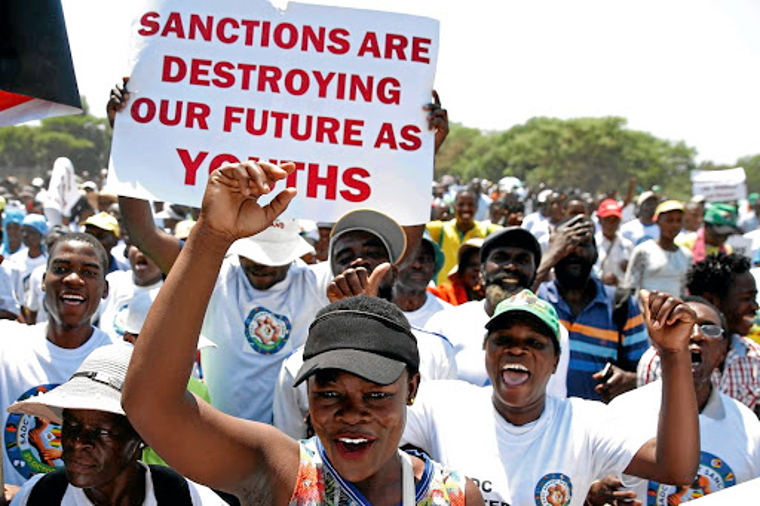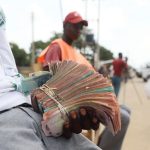But, 21 years later, the world in 2024 is radically different from what it was in 2003. The then unipolar world is rapidly becoming multipolar; while the US is not only no longer the sole superpower that it imagined itself to be; but it is also a palpably fading power with manifestly shrinking international influence, and is losing its nasty reputation a self-appointed global policeman.
In 2024, Russia and China are showing clear and present superpower competencies and capabilities, Russia as a top-notch military powerhouse, and China as virtually the world’s leading economy. Meanwhile, the US dollar is increasingly becoming a futureless currency.
New progressive formations, such as the BRICS, are looking more geopolitically palatable, and are increasingly having more sway in international affairs, than the likes of the EU or the white Commonwealth.
Britain, along with the EU, which got the US to impose sanctions on Zimbabwe between 2001 and 2003, long dropped their own sanctions on Zimbabwe, and left the US alone and exposed, clinging onto its 2003 Executive Order 13288, and its 2001 Zdera.
Along with the changed international environment, the regional dynamics in Sadc have also changed. There’s a new Sadc that has been in the making since 2003, aligned with the geopolitics of the emerging international order, a Sadc which is not dominated by the US. Gone is the 2003 Sadc whose politics were dominated by ideologically strong-willed nationalists, such as Robert Mugabe in Zimbabwe; Thabo Mbeki in South Africa, whom George W. Bush mistakenly saw as his point man in Sadc to deal with Zimbabwe; Joaquim Chissano in Mozambique; Benjamin Mkapa in Tanzania; Sam Nujoma in Namibia; and Jose Eduardo dos Santos in Angola, who were targets of imperialists and imperialism – particularly Mugabe – as individuals and collectively.
While in 2003 Bush thought he could use South Africa against Zimbabwe, in 2024 Biden’s hawks are scheming ways – sticks and carrots that include the Magnitsky global sanctions –
that they think they can manipulate to arm-twist Zimbabwe against South Africa, which Washington is increasingly viewing as the new “unusual and extraordinary threat to the foreign policy of the United States” in southern Africa; following South Africa’s ICJ action against Israel’s genocide in Gaza, and flirtation with a resurging Russia.
But the most thorough going changes over the last 21 years took place in Zimbabwe, itself. The land revolution led by peasants and veterans of Zimbabwe’s armed revolution – popularly known as the Third Chimurenga or alternatively as the Fast Track Land Redistribution Programme (FTLRP) – which peaked between 2000 and 2003 transformed Zimbabwe for good. Today, the land the irreversible success of the land reform in Zimbabwe is an untold story.
In fact, it was the revolutionary wind of the land reform that triggered George W Bush’s 6 March 2003 declaration of a national emergency that the situation in Zimbabwe constituted “an unusual and extraordinary threat to the foreign policy of the United States”. This fact is apparent in Zdera, a law specifically enacted to fight for the reversal the FTLRP by enabling what OFAC calls the ‘Zimbabwe sanctions programme’.
When the US national emergency was declared on 6 March 2003, Zimbabwe had a visible and an active ‘civil society’, most if not all of it oppositional to the state. This included the likes of Catholic Commission for Justice and Peace (CCJP); Legal Resources Foundation (LRF); National Association of Non-Governmental Organisations (NANGO); Organisation of Rural Associations for Progress (ORAP) and Zimbabwe Congress of Trade Unions (ZCTU).
Following the declaration of emergency and particularly between 2003 and 2013 under the largesse of Executive Orders 13288, 13391 and 13469 on the back of Zdera’s deep pocket, hundreds of millions of US dollars in ‘emergency’ funding was poured into these and other related organisations, including the Movement for Democratic Change; which was the main intended beneficiary of the ‘emergency’ and Zdera funds.
The US literally invested in these organisations.
Continued next page
(1121 VIEWS)


